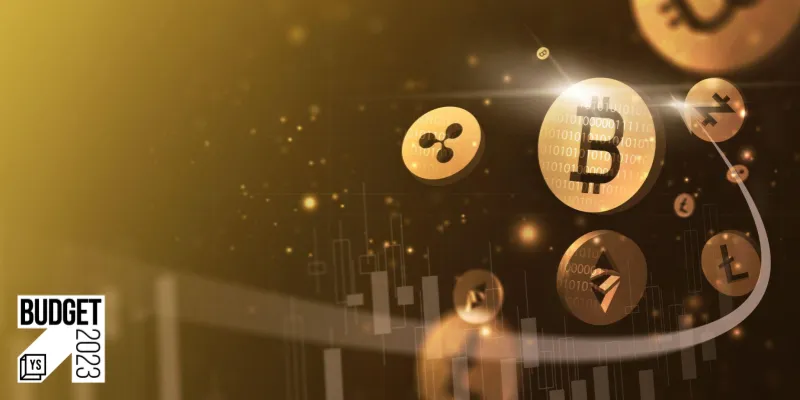[ad_1]
During the Union Budget 2023 speech, Finance Minister Nirmala Sitharaman made no specific announcements or changes to regulations around crypto assets, classified as Virtual Digital Assets (VDAs) in India.
With the lack of modifications to crypto regulations, the existing policy decisions (made during last year’s budget) will likely continue to stand.
As such, crypto assets are likely to continue to be classified as virtual digital assets, and income from their transfers will be taxed at 30%. Further, an additional 1% tax will be deducted at source on all VDA transactions. Finally, any loss from the transfer of VDAs could not be set off against any other income.
These policies have led to Indian crypto firms suffering declines in trading volumes and transaction revenues, which may continue during the coming year.
In the previous year, Indian crypto exchanges, including WazirX, CoinDCX, and CoinSwitch, lost a major share of trading volumes to international exchanges such as Binance and Coinbase, which do not have to comply with India-specific crypto regulations.
In fact, Indian exchanges lost $3.8 billion between February and October 2022 in trade to foreign exchanges, as per a report by think-tank Esya. It added that Binance and Coinbase held 67.6% of the volumes in India, up from 50% in November 2021.
In the leadup to the Budget, the Indian crypto and Web3 sector pitched for improvements to last year’s regulations. The sector believed that more progressive regulations could revive financial activity and innovation around blockchain tech.
Web3 and crypto industry leaders had called for the classification of VDAs as a regulated asset class, the repeal of the 1% TDS rule, and the ability to set off or carry forward losses in VDAs.
Some even pitched for VDAs to be classified as a separate asset class, with tax slabs and set-off benefits similar to those applied to securities.
It appears their recommendations have gone unheard, even as the Indian government pilots its Central Bank Digital Currency (CBDC) project, which it may consider an alternative to crypto.
In the India Economy Survey 2022-23 released yesterday, it was noted that India, through its CBDC, hopes to significantly boost digital financial services and provide the public “with uses that any private virtual currencies can provide, without the associated risks”.
There were also no steps taken to actively prohibit investments in and the use of crypto, despite the Reserve Bank of India reiterating its stance against crypto assets.
RBI Governor Shaktikanta Das recently batted for crypto to be banned, adding that he believes crypto assets have no underlying value.
[ad_2]
Read More: news.google.com









 Bitcoin
Bitcoin  Ethereum
Ethereum  Tether
Tether  XRP
XRP  Solana
Solana  USDC
USDC  TRON
TRON  Dogecoin
Dogecoin  Lido Staked Ether
Lido Staked Ether  Cardano
Cardano  Wrapped Bitcoin
Wrapped Bitcoin  Hyperliquid
Hyperliquid  Wrapped stETH
Wrapped stETH  Bitcoin Cash
Bitcoin Cash  Sui
Sui  LEO Token
LEO Token  Chainlink
Chainlink  Stellar
Stellar  Avalanche
Avalanche  USDS
USDS  Toncoin
Toncoin  WhiteBIT Coin
WhiteBIT Coin  Shiba Inu
Shiba Inu  Binance Bridged USDT (BNB Smart Chain)
Binance Bridged USDT (BNB Smart Chain)  Litecoin
Litecoin  WETH
WETH  Wrapped eETH
Wrapped eETH  Hedera
Hedera  Monero
Monero  Ethena USDe
Ethena USDe  Polkadot
Polkadot  Bitget Token
Bitget Token  Coinbase Wrapped BTC
Coinbase Wrapped BTC  Pepe
Pepe  Uniswap
Uniswap  Pi Network
Pi Network  Dai
Dai  Aave
Aave  Ethena Staked USDe
Ethena Staked USDe  OKB
OKB  BlackRock USD Institutional Digital Liquidity Fund
BlackRock USD Institutional Digital Liquidity Fund  Bittensor
Bittensor  Aptos
Aptos  Cronos
Cronos  sUSDS
sUSDS  Internet Computer
Internet Computer  Jito Staked SOL
Jito Staked SOL  NEAR Protocol
NEAR Protocol  Ethereum Classic
Ethereum Classic